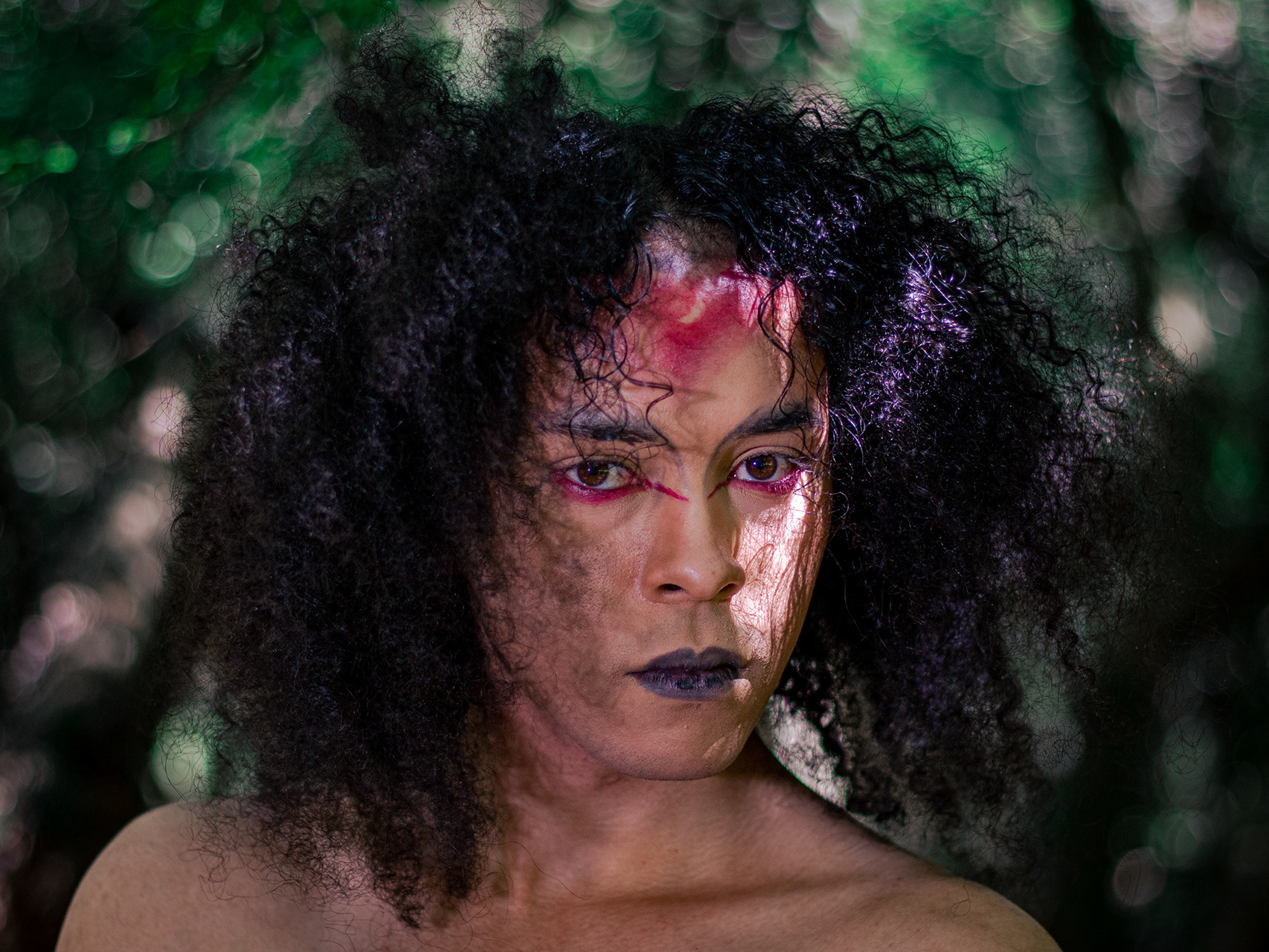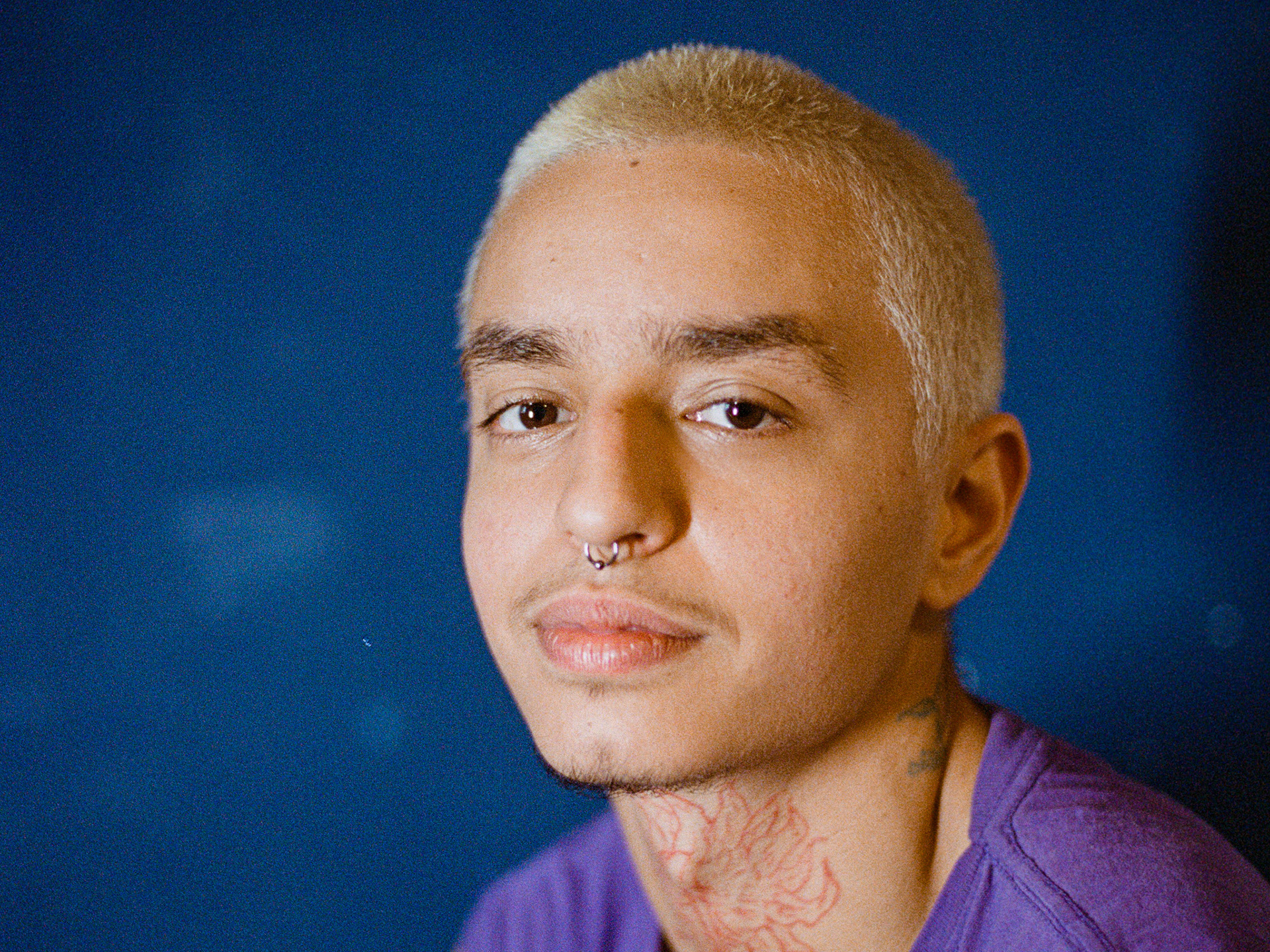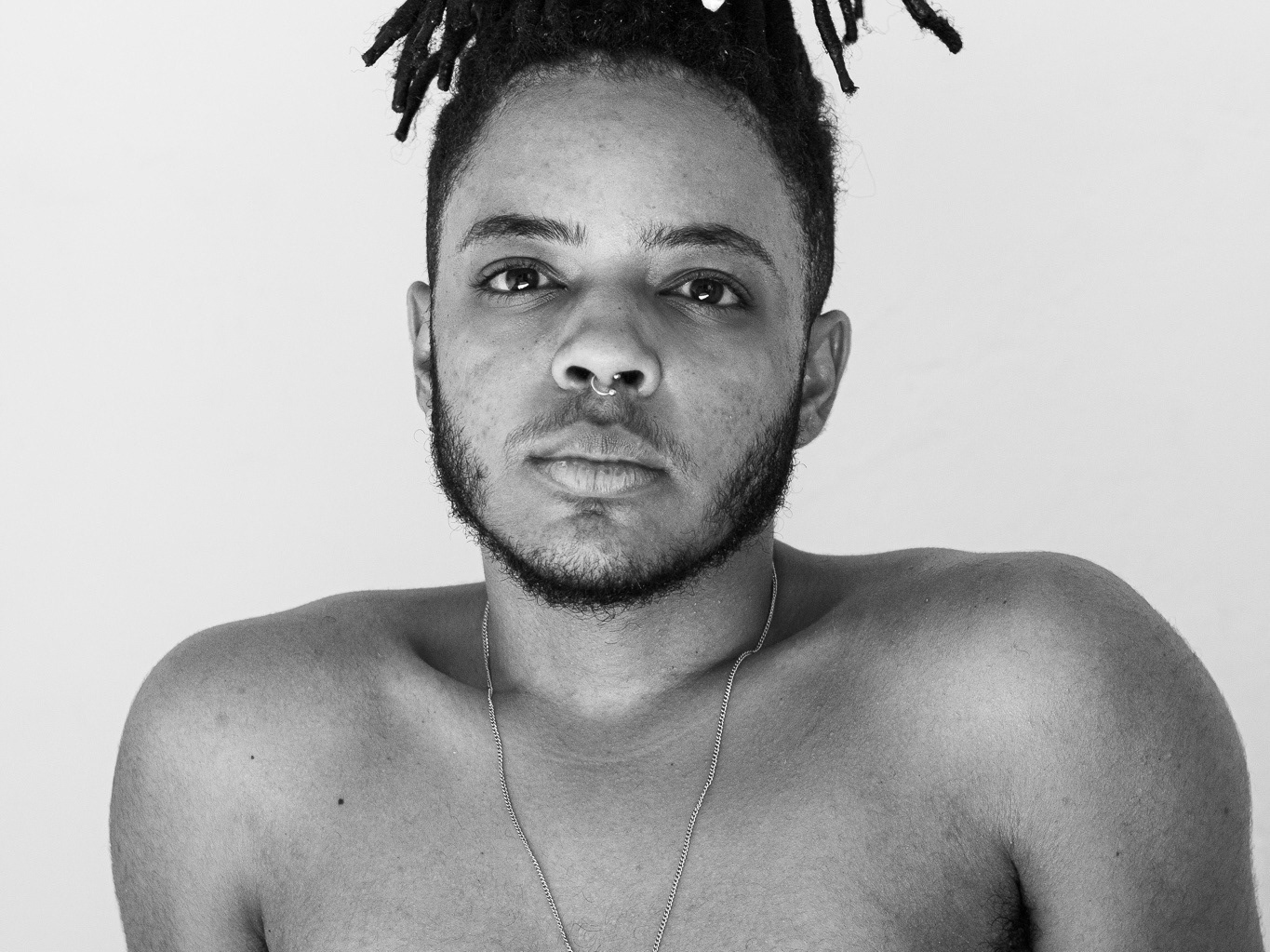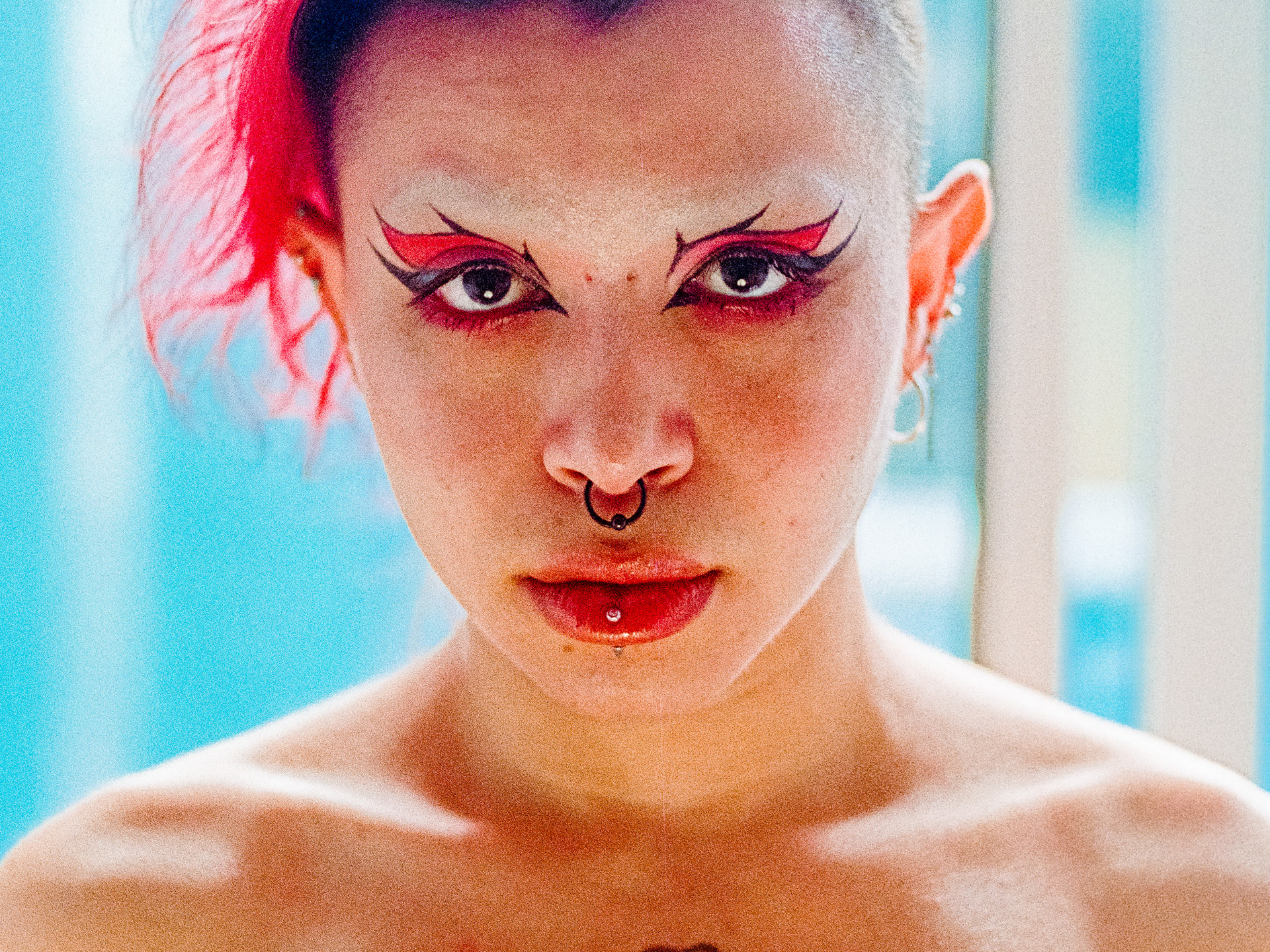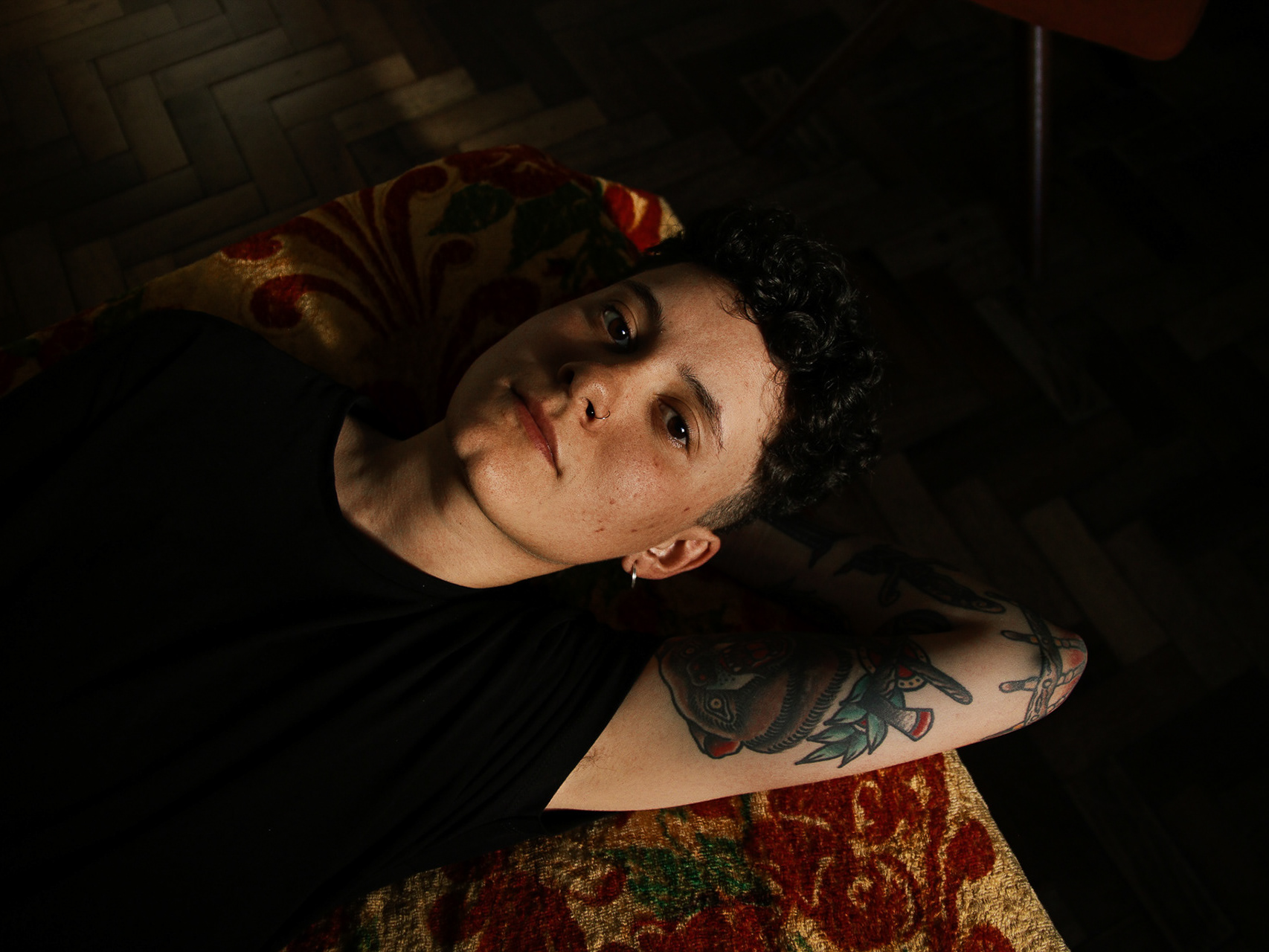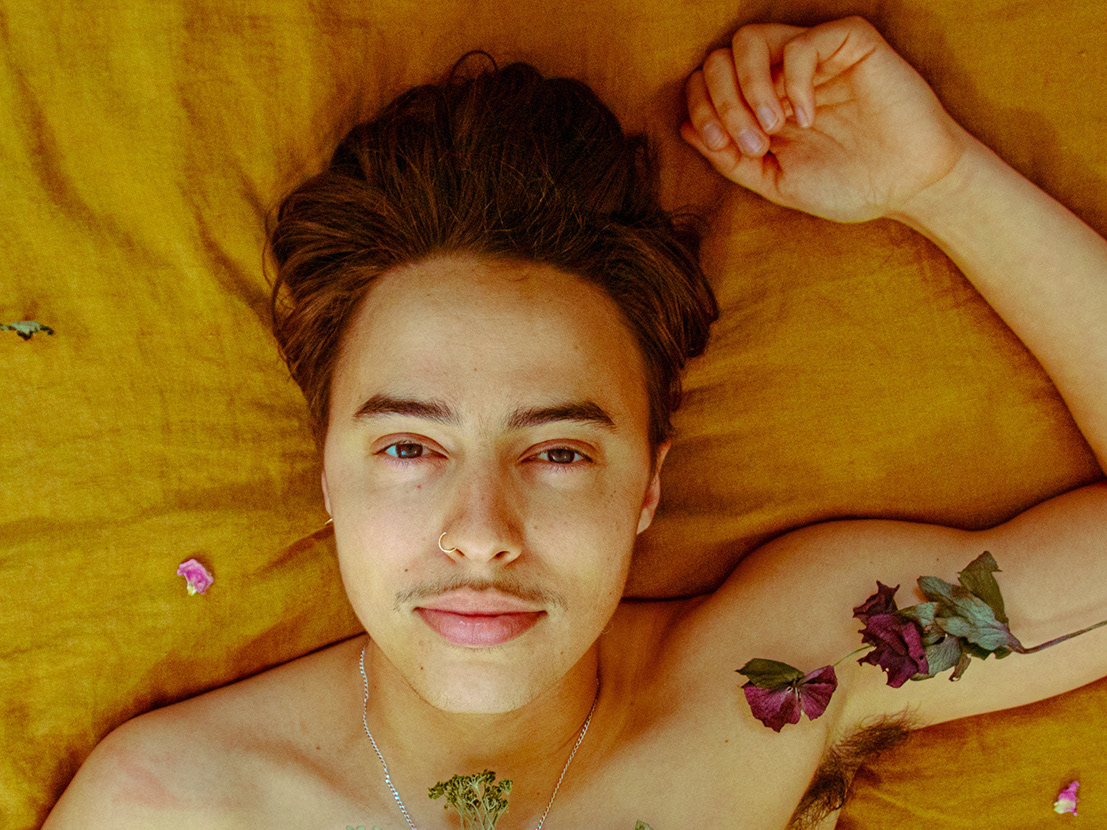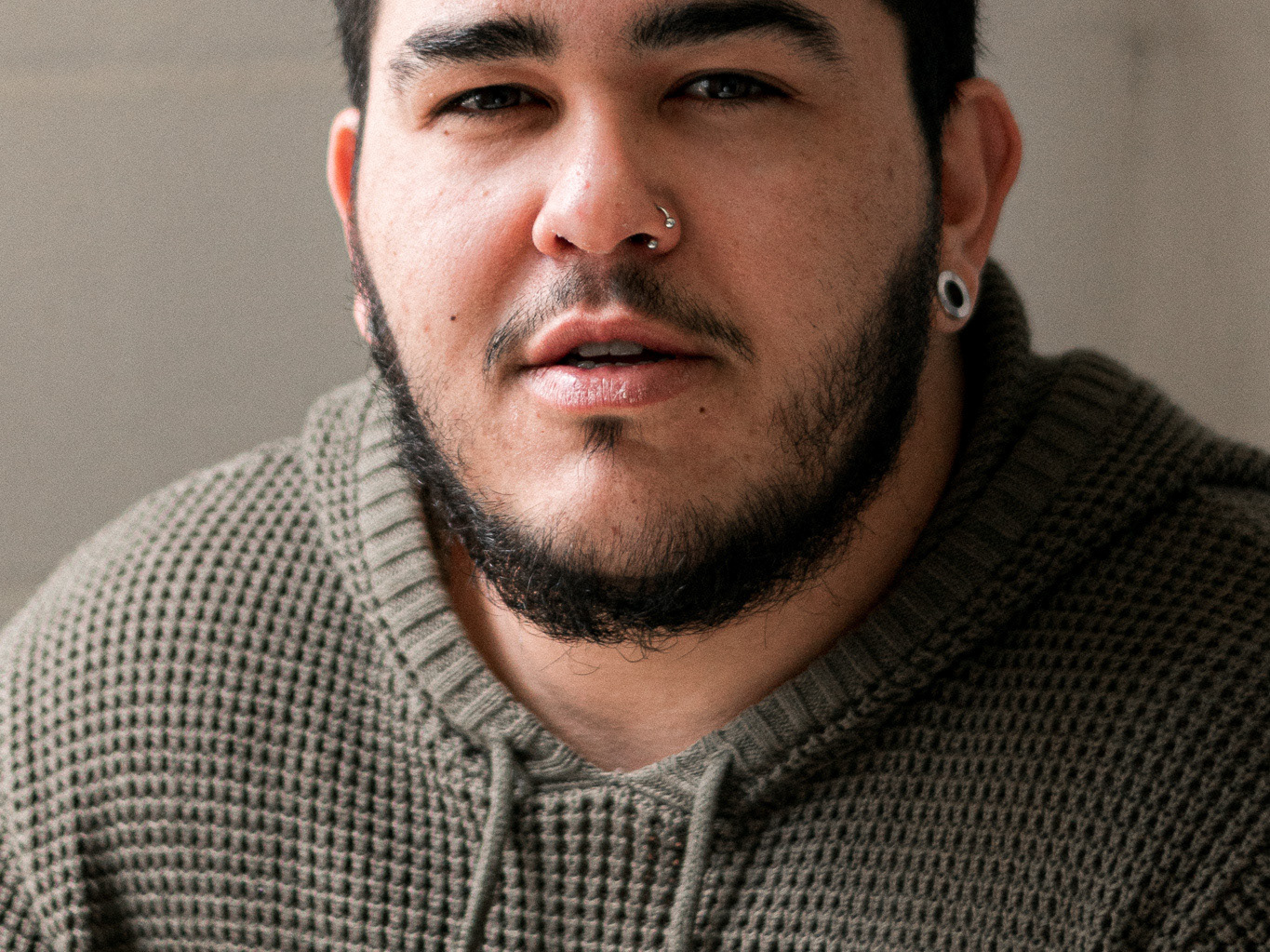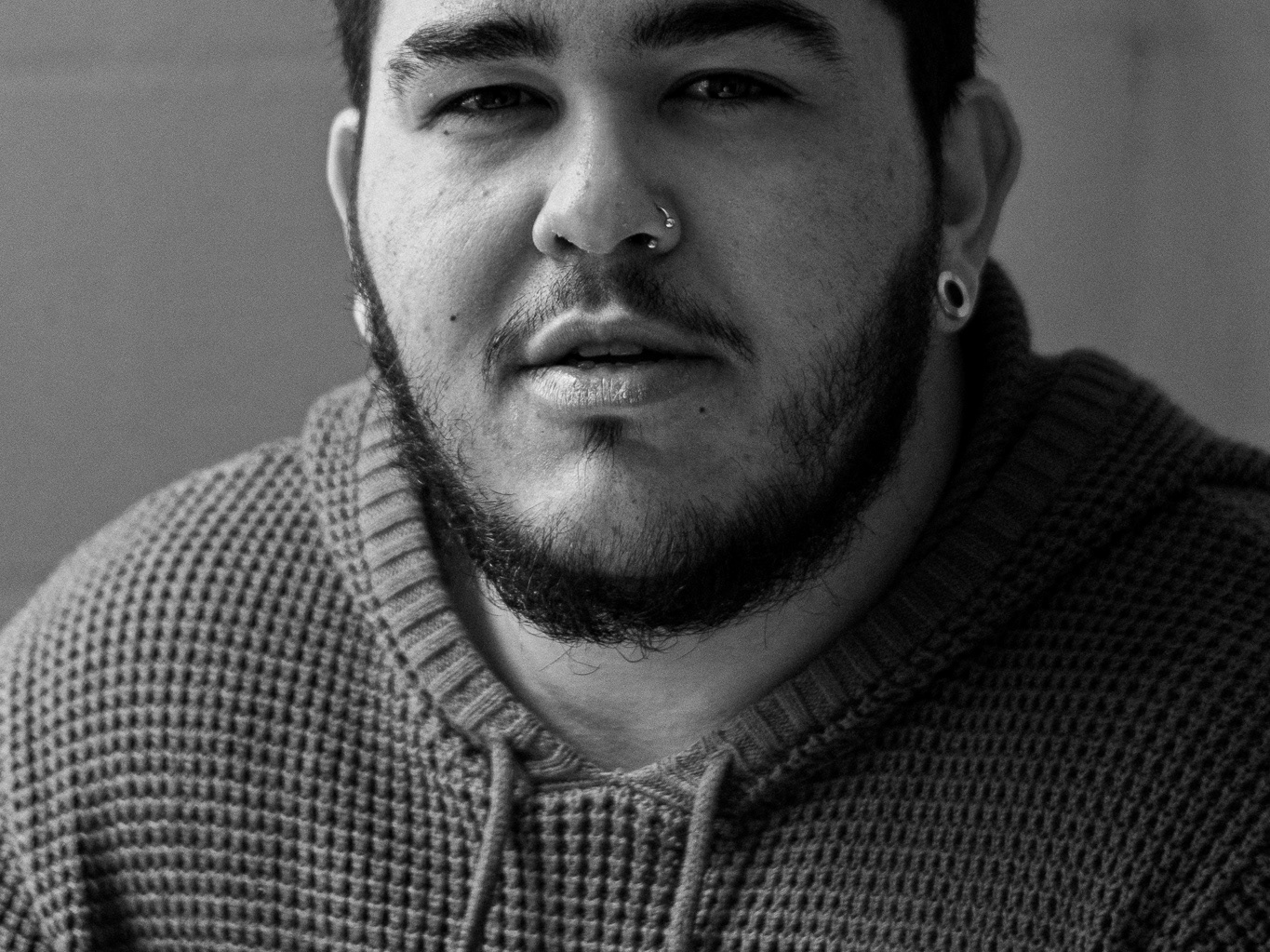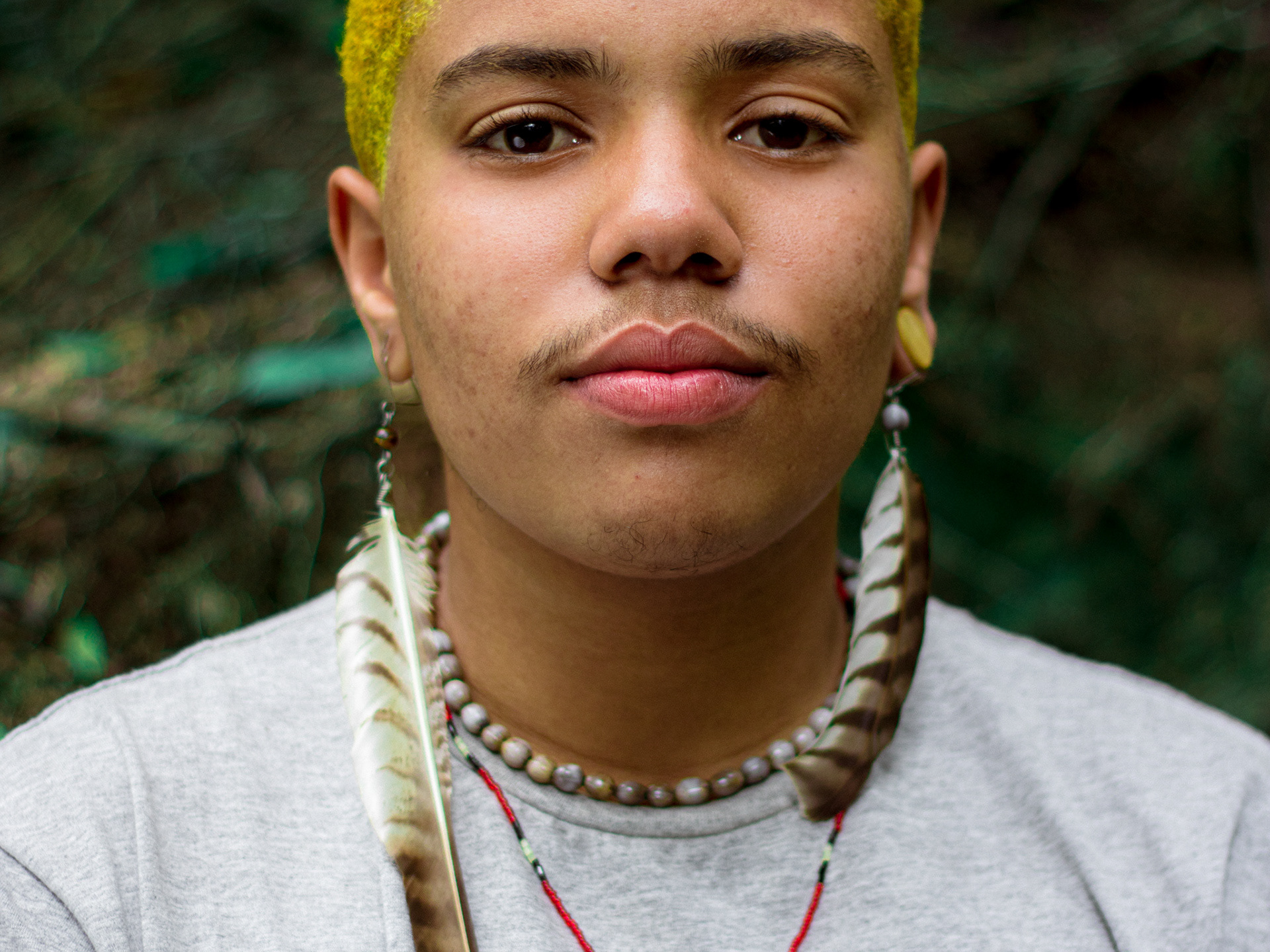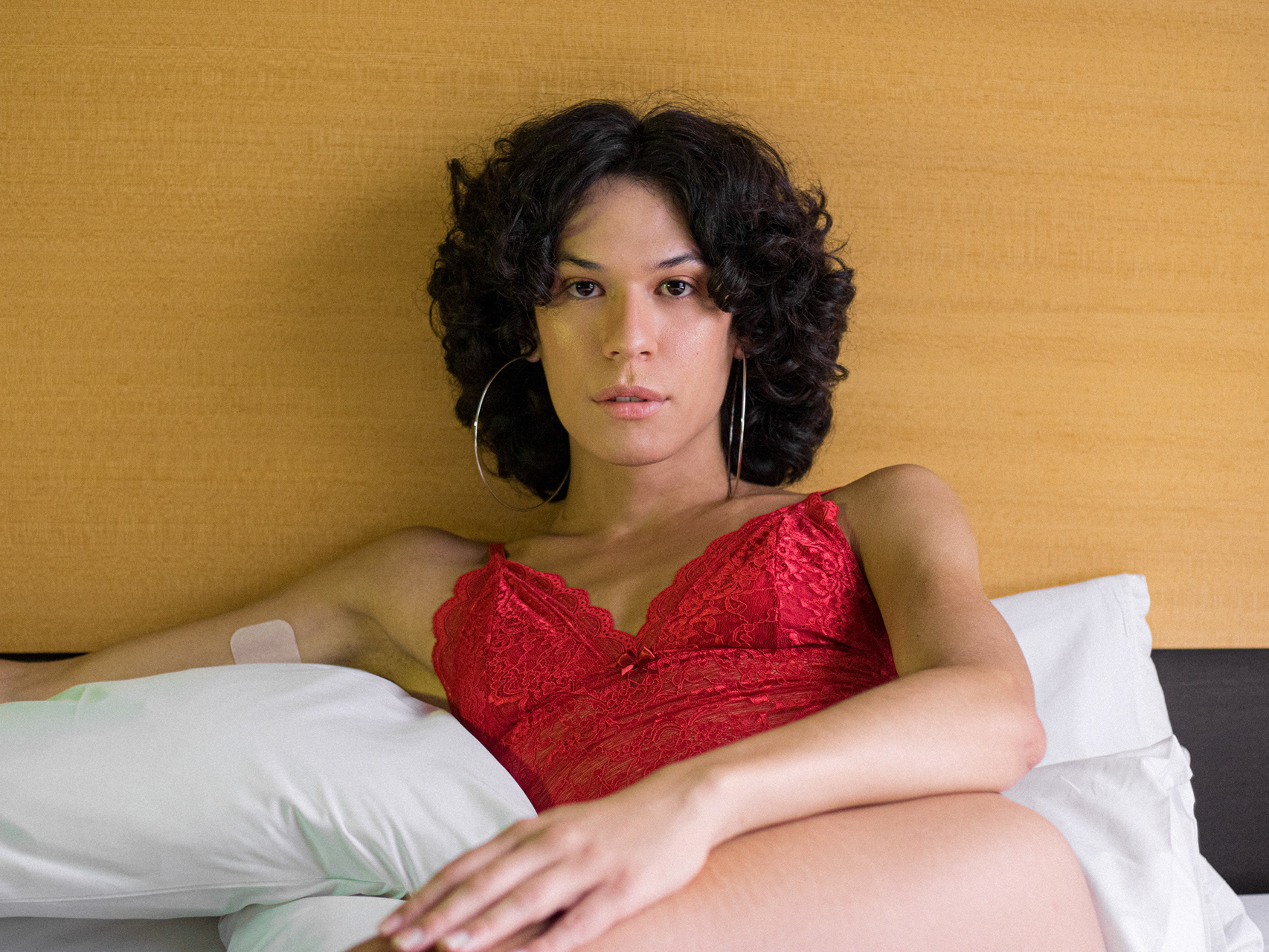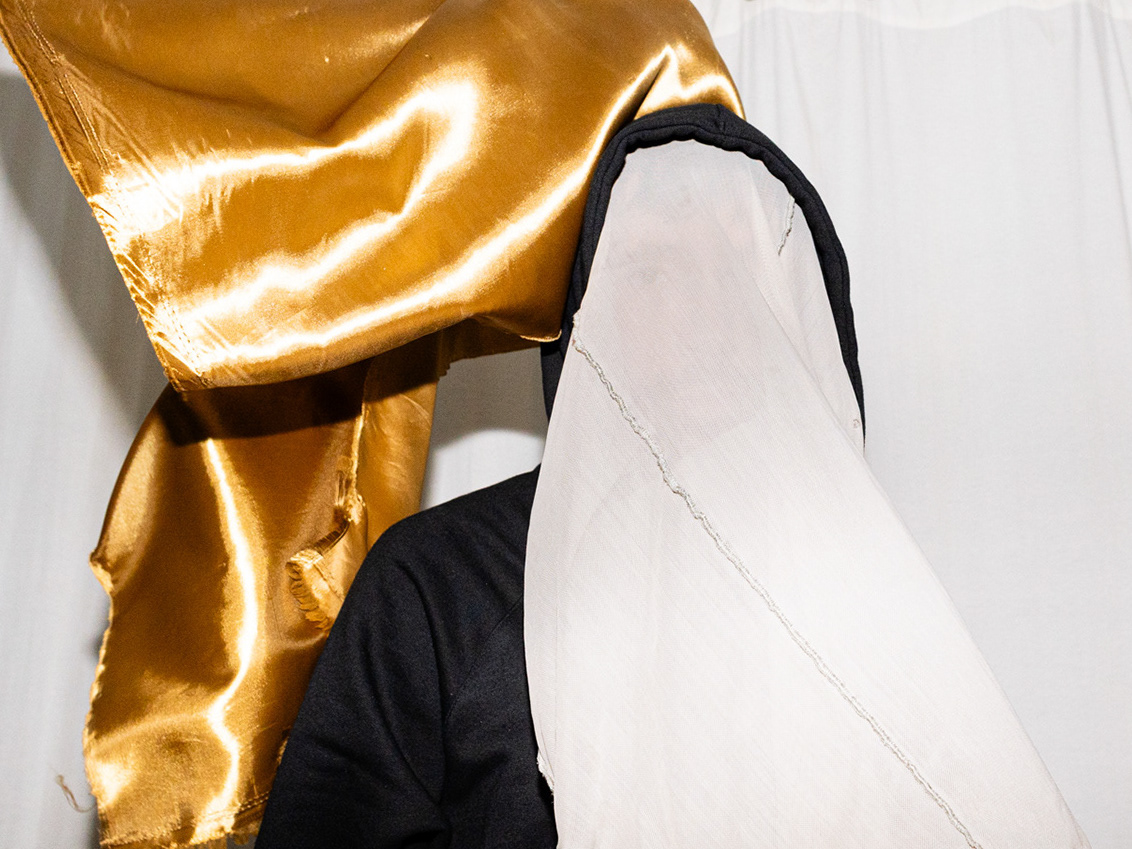I would say that nowadays I'm a non-binary trans guy, but honestly when it comes to expressing gender I'm much more binary than anything else. Like, inside of me I don't see myself strictly as a binary person - if I want to use such a thing, whatever, that doesn't necessarily change my identity. Femininity doesn't come to my mind as an identity, but as an experience. I can perform femininity but it is not necessarily part of my identity. I consider myself a trans guy and that's it.
Because sexuality is more talked about in the media than transsexuality, it came first for me - I started thinking about this when I was about 12 years old, what it's like to be bisexual, what it's like to be pan, etc. I remember at the time there was a lot of anti-LGBT propaganda on various religious channels. It was a very scary moment for me, of me thinking I was wrong, that this was just in my head. For a long time I denied this idea that, I don't know, I could like both.
When I was still seen as a girl I had a crush on a friend and I felt very strange... but I never thought of myself as a lesbian. I've always had an experience of being someone who likes who they like and that's it. I never thought like “oh, great, I belong to the lesbian community, or the gay community”, I never saw myself as belonging to one of these communities. It was with the experience I had later that I discovered transsexuality, that I started to see that my issue was not sexuality. I really wanted to find my identity. That's when I started to understand about it. At about 13 or 14 years old I declared myself as gender fluid to some friends. And then people started doubting, asking "but are you sure?" That's when I actually started talking about it, thinking about myself in this community. From then on, it was more like me trying to understand myself as a trans person in general, like “but what am I? What do I want?"
That's when I started to adopt the name "Li". In high school I was called “Li” and it was very insane how the school, here in Niterói, looked at me from then on. There were times when people called me by my dead name and such, but those are very rare situations as opposed to most of the school who called me by the name I had chosen - which is pretty cool. But before that it was very complicated, you know? Because I was already the weirdest student for liking things that most of the popular kids at school don't like, like anime and stuff. I was already seen as a weirdo, so for me to really affirm myself as being a trans person - my mother wasn't prepared for that either - it was only in high school. From then on, that's what I'm living now, there's not much to talk about anymore. I think the journey never ends, it was born with me, I then discovered it and went on - that's basically it. Nowadays I call myself Bernardo, because I found Li very difficult - people were always asking “oh but is it Li with an “L” and an “I”?” It tires me a little and I love convenience so I preferred Bernardo. I asked my mother "if I were a cis man what would you call me?" She said “Bernardo”, so I chose that name because she could also have a part in this choice.
(analog photography)
Before high school it didn't have this thing of respecting my name because I wasn't affirming myself yet. But at this school in Niterói… I wouldn't say it was a question of people necessarily respecting me genuinely or not, but it's more about law - the use of a social name as a law. My mother imposed herself there, so did I. In general, the teachers and the people and staff at the school have always been very open to my situation, who I am and everything else. I think winning people's trust, whether they are cis or not, is a base point for acceptance, for coexistence. I was a nice student, I was nice to them… This proximity helped a lot to create sympathy too, for the idea that this should be said and that this exists; but, thus, I was the only trans person out until at least the second year. In the third year another boy appeared, but I never spoke directly to him.
It's not like all the students were nice to me. For example, there was that call list thing, my name wasn't rectified yet, and I still used "Li" at that time, so it generated more questions, like "did your mother choose that name?", "oh, what a different name”. There were some people who felt determined to look for my name, to want to know, because “oh my god, my curiosity”, you know? There were some embarrassing situations involving the girls in the other classroom - when I entered school I was in one classroom, then I moved to another because of this incident. Like, they started whispering my dead name to everyone. And I was super uncomfortable about it. I had to impose myself, it was very difficult.
There were some teacher speeches that were weird. There was one teacher who delegitimized the trans experience a lot, he didn't believe there was a difference in treatment, like “a white guy can die the same way a black person from a favela. We're all the same". He had this ridiculous ideal and when I fought it, everyone said “you're exaggerating”. So it's not like it was all flowers and everyone accepted me and was super nice and understanding to me, no. But it was the first school where I had this experience of being openly a guy and being treated as such. And if someone didn't treat me as such, I - and not just me, some other people would defend me. It was a nice feeling to have classmates who defended me, who respected me and who were allies, even if they were cisgender, even if they were straight. It was more or less like this… Then I graduated and during the vacations before college my name was already rectified, so when I went to college there was no reason for anyone to say anything. The experience at school was more or less like this.
I don't think I had any particular references. I knew what it was, but I only came into contact with the community much later, when I was 17, 18 years old. That's when I actually started meeting people who are trans, meeting activists, people from the internet who are trans… It was after all that. Trans references from before I can only think of movies, like “The Rocky Horror Picture Show”, or “Boys Don't Cry” - which is super sad, for god's sake! Characters that even in cinema are not represented in a uniform way or in a way that you will necessarily identify with. Nowadays I think I have more trans references than before, like people from music, actors. I have a much broader view because trans people are more in the media nowadays. I have Indya Moore - she is wonderful - I have Liniker, I have you! I have… everyone from Pose, right? I mean, having a series that brings the experience of black trans women is fantastic. It's really, really awesome to have this reality these days, it's something like… that my mom wouldn't dream of if she was a trans woman. Having that today is a fantastic thing. Having trans people, even the ones that are less influencers, like Jonas Maria; Lau Estranho; Lucas, from Transdiário. Even if you don't necessarily agree with these people, but to know that they exist, that they're influencing, that they're names on the internet, it's an amazing thing. Listening to trans music is an amazing thing. Meeting Liniker was something that helped me a lot. Meeting Linn da Quebrada, meeting all these black and trans women who are making revolutions around the world and throughout history too, you know? So, like, my reference is life, my reference is the people around me, because everything for me is referable, everything for me has a referable nature of you being able to guide yourself from there - to see in someone something that is worthwhile and to learn, to build something with the experience of other people. My own friends are also people I use as a reference and all people have beautiful and different experiences about what it is to be trans.
(analog photography)
Niterói is pretty ok with this; Even though it's not working anymore, Niterói has the Ambulatório T. The LGBT community here is quite expressive. I mean, it's a city that has a trans councilor, right? Which is [Benny] Briolly - I voted for her - she's a black trans woman who got elected, so we have trans political representatives here. I think that although this will not end transphobia - there is still transphobia, trans people still die here - but it's something that, at least from my experience, I have never had many problems - but my experience is a privileged experience, a white middle class experience. I can't say how the experience of a person who is not in these privileges is, but I think it's quite ok, actually. I don't know if it would be better than in Rio, but I think it's more chilled here.
The historicity of transsexuality is surrounded by discussions of mental health, right? Transsexuality has long been seen as a mental illness, a disorder, so this discussion has been around forever. When we started the discussion of “being trans is not being mentally ill”, we created a division, but this division does not mean that they don't relate, that the trans experience doesn't relate to a person's experience who has emotional problems. The trans experience is arid, it's difficult, it will overwhelm you, hurt you, make you feel lonely... It depends on the experience, but for the most part it's shocking, revolutionary - and all revolutions are difficult to deal with and have many impacts that are not necessarily pleasant every time. So, mental health is always linked to everything, but, mainly, to experiences that are difficult, that you need to constantly struggle to exist.
I can't say that all trans people are depressed or anxious, but what I'm saying is that the experience allows these things to exist, for these things to happen, for us to develop emotional problems. Being trans does not condition you to be a depressed person, but the experience can be quite traumatic. I am depressed before being trans. My mental health is above my identity in the sense that my mental health is what needs to be helped and healed. And being trans is not a problem, the problem is how people respond to my existence. So I don't have to do anything about my transsexuality, I don't have to work anything because my existence is valid and that's it. But mental health is something you need to be thinking about and working on constantly, so it's much more tiring to deal with it knowing that you have to deal with it every day to exist. This fusion between the two, transsexuality and mental health, is very similar in method, where you have to reaffirm yourself every day. There's also this issue of you being delegitimized all the time. So there are a lot of similarities but at the same time these things have already been very confused; these are two topics that intertwine several times throughout history.
There was this idea of, for example Buffalo Bill, he was a crazy serial killer who dressed as a woman when he committed crimes… Not only Buffalo Bill, but also with the movie “Psycho” where Norman Beats is a guy with mental disorders that make him, again, wear his mother's clothes. Like, why do you always need to put transsexuality, or the performance between the two genders, as an attribute of someone who's crazy? Of someone who is psychotic or manic? It goes far beyond our discussion, it is a historical thing, built a long time ago, since always. The idea of you wanting to be outside the gender box makes you a manic and dangerous person. There's a documentary, Disclosure, which talks precisely about that, about the trans presence in cinema and how it evolved as time went by. In the cinema, the trans person, especially the trans woman, is a manic, pedophile, murderer... Being trans was villainized and this connection with mental health was intrinsic for a long time, so I think that is a valid discussion. Ok, I'm not a PhD, I can't say I know everything about it, but it's a very interesting topic where all is interconnected and we have to demystify, especially so we don't return to the idea that being trans is a disease. We are always one step away from going back to the past, back to the way we were, making past mistakes that have not been resolved for lack of dialogue.
Comedy is also like that. To this day, there's an idea that we are here to be a joke. I think this is much stronger for trans women - not that we don't have that, that we're not seen as "oh, you're just a dyke", summarized to "you're just a macho girl", but it is not as strong as the stigma of the trans woman because it starts from this idea that you are giving up something that is great, which is being a man, to be an inferior thing, which is being a woman. So patriarchy hits trans women much harder. It's almost an insult to the cis man, like "what do you mean you want to give up being a man, who is such a bright and beautiful and perfect being, to be a woman, who is nothing?" Trans men has a greater acceptance among cis men because of that, because there's this imagery like "oh, okay, he was a woman, he decided to become a man, ok..." Not that it's always this reaction but in the patriarchy's imagination it's like “you're trying to evolve”.
As there is also the discussion “you are a trans man because you want to use the privileges of being a man”. It really fucks up people's heads, of trans men in general. It has nothing to do with it, but it is the result of this patriarchal idea. It's like a little pokemon, it's evolving to be a man who, in the perfect image, would be a trans man as close to cis as possible. Because there's no point in claiming yourself as a trans man, which for them is like an evolution, and continuing, for example, wearing dresses. Then it's not possible, right? because you're not performing your full privilege. Of course it was never about them but one thing cis men love to do is to put their dick in the middle of the universe - being that no, no one cares about your dick. It's obvious but at the same time it's very difficult because this idea is ingrained.
(analog photography)
Nobody ever came up to me and said “you're not trans, you're just crazy”, but there had been several speeches between the lines of it - especially with my mother at the beginning of my transition, of her thinking I'm just freaking out, you know? My mother had a very aggressive reaction to my weaker mental health moments because she didn't know how to deal with it, she didn't know or understand what to do with it. Her reaction to me being trans was also aggressive because she thought it was all coming from one place - from poor mental health. She didn't even understand why I had anxiety attacks, for example. I don't know if she disempowered me because I had a mental health problem or just because she didn't want that to happen. Genuinely, I've been very devalidated, for example, by my brother, not only because of my mental health but also because of my age... That thing “you're young, you don't know what you're talking about”. I'm not being devalidated for having a mental health problem because first my own mental health is being devalidated - I was never considered, to some extent, a mentally ill person, I was only put like this when I said "Mom, I have an emotional problem, can you understand? the things I go through are neither normal nor healthy”. And that's when she started to notice. To deny that someone has a mental problem is a murder, you are leaving that person at their own mercy and that is a very serious problem. Nowadays I'm controlled, but in 2013, 2015 I couldn't be left alone.
It's something people only take seriously when they lose; that's why it's very important to talk about it, that sensitivity is not the same thing as an emotional problem - you can be sensitive, you can cry every night, you can cry with soap opera, you can be sad because your show's character died… but it's not the same thing as depression. Sadness is not depression and depression is something that stays with you, you know? There is no way to cure yourself of depression, you deal with it, you deal with what was left for you; and this involves the post-traumatic. It's also a common situation to have the trans experience intertwined with the post-traumatic. Abuse or psychological manipulation, all these things are very intertwined and they end up being used to devalidate the trans experience. Like “you only became trans because you had a certain episode that traumatized you”, when not, it's something separated, you know? The devalidation comes exactly because they put both together, transsexuality and the experience of a person who has a mental disease. It's not the same thing, it's not in the same box. Being trans is a completely separate experience from your mental health.
Acceptance is not the same as validation, things get much lighter when we understand this. Acceptance carries a weight of “oh, in the moment I am accepted I will be validated”, when actually no. There will be people who will accept you but who won't necessarily validate your existence, or who won't see you for what you completely are. And that's okay too. That's about it: it's okay too. With my mother it was a situation… Mental health came first. So, it was already difficult for my mother because she has a sick child. Being trans came after. Sometimes I felt that she thought “damn, he's inventing so many things just to be different and to be difficult to deal with”. We carry this stigma of “you are pushing hard to be difficult, because in addition to being depressed you are anxious, in addition to anxious you are trans, in addition to trans you are pan”. And it's not my fault. Many years ago I had a lot of anger inside me, I didn't handle it well, I was always fighting. And I don't regret having fought, having screamed, but sometimes the impatience of being accepted to be validated takes you to paths that are not the most intelligent. You feel this desperation to be validated, but the point is that you need to validate yourself. Until you validate yourself, no acceptance will satisfy.
When I validated myself, I no longer depended on my mother's validation, so for me there was only one step left, which was for her to accept. This helped our relationship because at some point she couldn't see anything but Bernardo. Who I was was so transparent to her that there was no way for her to escape - as I also had no way of escaping. It's a long process and sometimes it hurts. I think doing and talking shit and then feeling bad it's all part of it and this is it - the priority has always been for me to live and validate myself because otherwise it wouldn't be worth it. Then acceptance came for love. Validation came by luck, because I had a mother who understood me, you know? But waiting for people's validation is not worth it, you need to validate yourself, the moment you validate yourself, nothing will hit you because you are real and it's over. There's no way for someone, for example, to deny gravity, its existence is a fact and if you don't believe it… what a pity, right? So validation is something that has to come out of you, it comes from understanding; if you understand yourself, acceptance is what's left. That's what happened, but I'm very privileged. I always like to repeat this because it's very easy for me to say this when, for example, I wasn't kicked out of my house.… Even having fights and difficult situations I had a very privileged trans experience. I still had a roof, I still had food, I still was living off my mother.

(analog photography)
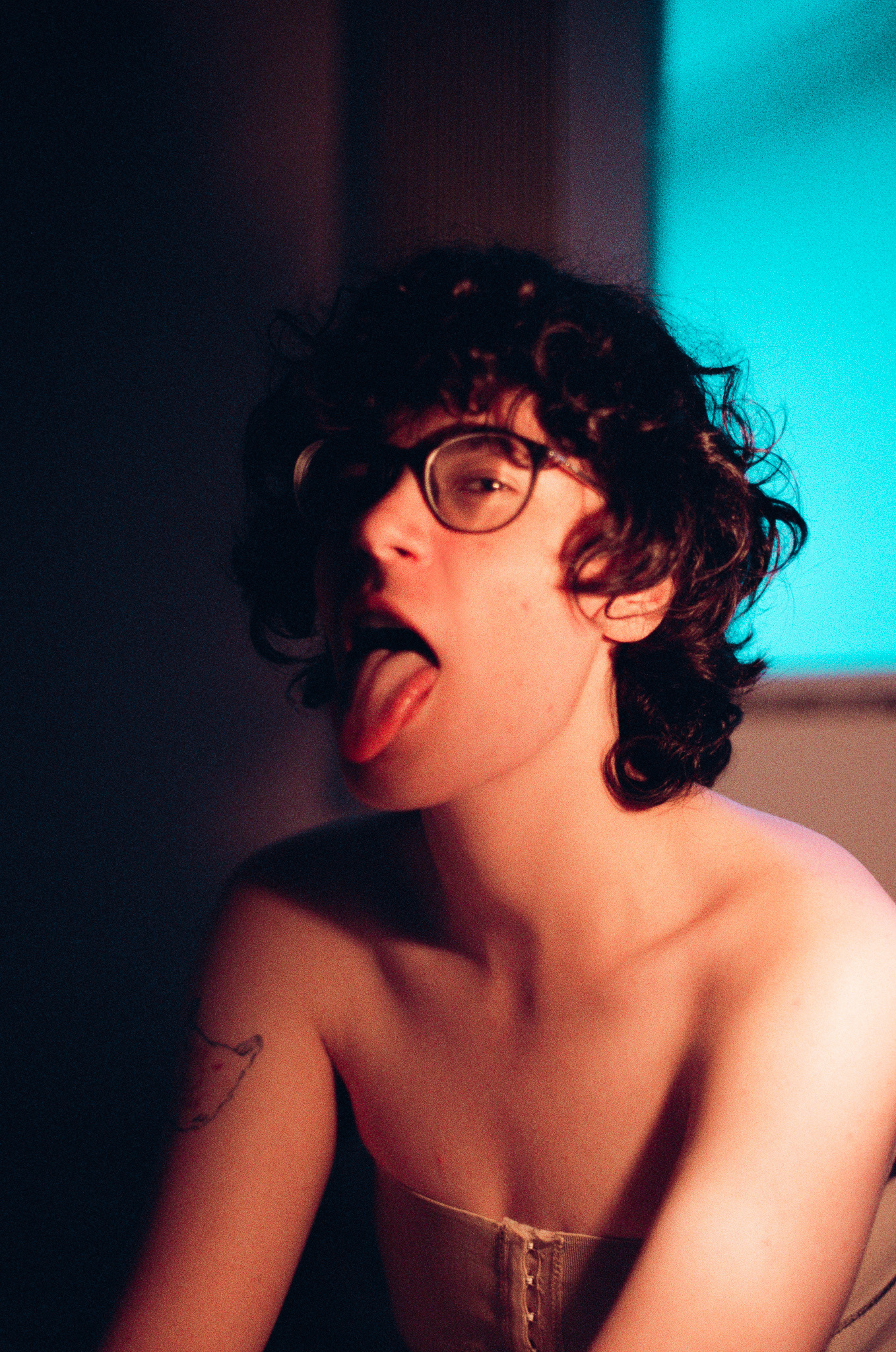
(analog photography)
We have to privilege our identity above all; identity being what you like, what you hear, what you are. There was a friend once who asked, "man, so I am a trans guy, but I still like feminine things like dresses, pink stuff, hair ties… so… I don't know, am I gender fluid?" Then I asked “are you a guy? do you see yourself as a guy?" Then he said “yes”, so I replied “then it's over. (laughs) What do you want me to say? That's it". I think this is something we have to talk about in the trans community, especially in the Brazilian trans community, like, you don't need to wear your cis uniform to be trans, it doesn't make sense. Be you, be who you are, love what you want and none of this will undermine your existence or who you are.
I was at the drugstore when I saw the most beautiful hello kitty band-aids in the world so I said “please, I want to buy it” and my mother replied “huh? but don't you wanna be a man? you confuse me”. I was like “gosh, it's just a bunch of pink plastic pieces with a cat printed on it. You mean this will destroy my story? Wow, fuck!” Sometimes people give a lot of importance to inanimate objects and we have to stop that, we have to stop with this idea that fabric, plastic, furniture and color have genitals, gender identities… There isn't, you know? It's just things and as Miley Cyrus once said - I think it was her - we have to dominate things and not have things dominate us - she's a thinker (laughs). And that's it. It's about you not having to conform to what's available in your box. Things have to fit you, got it? So if you want to buy that dress, buy that dress; if you want to buy some pants, buy some pants; if you want to buy the hello kitty band aid, buy the hello kitty band aid. And that's okay. This does not discredit you and this has to be spoken not only to trans people, but especially to cis people. It's cis people who still have more voice than us, that's obvious. This idea of excluding what is not from the community is anti-productive, we need the people who are in the dominance so that our fight is heard. So we have to tell everyone this: binarity will cry.
.•
•
•
Bernardo Sobrinho
2000.
Illustrator, photographer and sociology student.
Was always interested in self-expression through art.
Masculine
He/him.
Not hormonized.
@beetledart
2000.
Illustrator, photographer and sociology student.
Was always interested in self-expression through art.
Masculine
He/him.
Not hormonized.
@beetledart
*essay from March 2021, Rio de Janeiro (RJ), Brazil.
-
*all Ser Trans analog photographies are developed by our partner Lab:Lab
This project is made by me, Gabz. I am a non-binary trans person and I seek not only to portray but also to open a space where other trans people can tell their stories, so to support our own community. After suffering a lot from the lack of trans narrative references that contemplated me, I realized that these people exist and have always existed, but for CISthemic reasons the few times we have the opportunity to tell who we are ends up being through the lens of people who do not know how it is to be us. I started this project with urgency.
I offer all this content for free, as I do not want to privilege access only for those who can pay. However, for this project to continue, I need your help. Share on your social networks! SIGN UP TO PATREON TO RECEIVE EARLY ACCES TO IN FULL ESSAYS! You can also make a single or recurring donation. Even $1 already helps make this project possible. Help me help us!
*foto revelada por Eloá Souto, digitalizada por Lab:Lab
